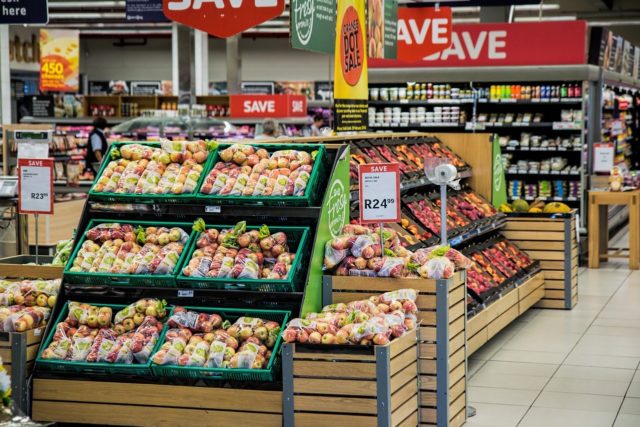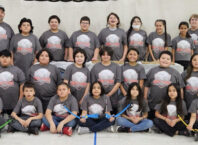By Eddie Chuculate
After rioters looted then set fire to grocery stores in the wake of George Floyd’s death, many Minneapolis residents have had to alter their ways of getting groceries.
Stores have either temporarily closed, remained boarded up or have no plans to rebuild after the protests in late May.
Some basic food items such as eggs, milk and bread were already scarce in the initial scare and hoarding after the pandemic first hit, and stores began to limit the amount of items customers could purchase.
The prices of grocery staples such as meat, dairy and produce have shot up as demand outstrips supply, or food-distribution chains have been disrupted due to the effects of the coronavirus. And added to mass layoffs – the most in Minnesota history – some people have had to depend on state or federal assistance and food banks and pantries.
Second Harvest Heartland, the leading Minnesota food bank, said on its website this week that a hunger crisis is forthcoming “unlike anything seen since the Great Depression.”
By August, Second Harvest said, 1 in 8 Minnesotans will experience hunger, up from the current 1 in 11, according to data commissioned from McKinsey and Co., a management consulting firm.
Travis Bush, 38 (Dakota and Mohawk), lives in the Little Earth of United Tribes housing complex in the Phillips neighborhood in south Minneapolis.
Little Earth, home to 1,000, is considered the only urban housing complex dedicated for Native Americans in the country.
Due to the looting, his two closest and favorite options for groceries – Cub Foods and Target in the Minnehaha Center about a mile away – have been closed due to vandalism and arson.
There’s an Aldi’s about a mile south on Franklin Avenue, but Bush prefers to drive to another Cub or Target more than 2 miles away to get groceries for himself and his two daughters, ages 7 and 9. He tries to limit those trips to once every two weeks or so, preferring to “stock up.”
“I felt bad about George Floyd’s death and wanted to get out there and support, too,” said Bush, who has lived at Little Earth for about two years.
“We were watching them loot and walking back we saw the Cub. It was all boarded up and I thought, ‘Well, at least they’re not messing with Cub.’”
The next day Bush discovered that it had been set on fire and looted. The sprinkler system saved the Target store from being fully engulfed, officials said.
Both stores are near the epicenter of looting and violence along Lake Street near the 2nd Precinct police station and a U.S. Post Office, both of which were destroyed.
Bush is also laid off as well from ironworking and said he depends on the federal SNAP program for food assistance, even though Little Earth has rallied to offer groceries and supplies to its residents.
“The Native community in south Minneapolis has been really strong helping each other out,” Bush said. “Food donations, even barbecues at Little Earth, it’s been really awesome.”
Bush said Bdote Learning Center, an Ojibwe and Dakota language-immersion charter school, has been making weekly food drops for his daughters, who attend school there.
He also credited the Minneapolis American Indian Center’s Ginew/Golden Eagles and the Division of Indian Work for their after-school programs and helping the community with groceries.
“I just try to use my EBT card and not double-dip from people who really need it,” Bush said. “But I did go over and get some dish soap.”
The Minnesota Department of Health is recommending that only one or two household members who are at low risk for adverse reactions to the coronavirus go grocery shopping.
It also recommends wearing a cloth face covering and keeping 6 feet away from fellow shoppers. Wearing a mask is now mandatory in public places in Minneapolis, according to an emergency order issued by Mayor Jacob Frey.
The Health Department also recommends avoiding public transportation if possible and washing your hands upon returning from the store.
While actually shopping, try to stock up on vegetables and other items that have a long shelf life, and avoid handling food unnecessarily. Come prepared with a thought-out list that encompasses snacks and healthy options, trying to avoid too much caffeine or sugar.
There are several options in the Twin Cities for help with food. The Health Department has a list of agencies on its website such as Meals on Wheels or the YMCA.
The Minnesota Food Helpline at 800-711-1151 can also help with assistance. The Hunger Solutions website can search by your ZIP code in categories such as food shelves, senior resources, farmers markets, free meals, discount groceries and community food distributions.
More information on food access and shopping for groceries during the pandemic, can be found at:
Healthy Eating During the COVID-19 Pandemic
https://www.health.state.mn.us/communities/healthyeating/covid19.html
Good Food Sold Here: Increasing Access to Healthy Foods in Small Stores
https://www.health.state.mn.us/communities/healthyeating/goodfood.html
Food shelves and resources
http://www.hungersolutions.org/find-help/#map
The Coming Hunger Surge
https://www.2harvest.org/who–how-we-help/the-face-of-hunger-today/the-coming-hunger-surge.html#.XvSpIChKiM8







